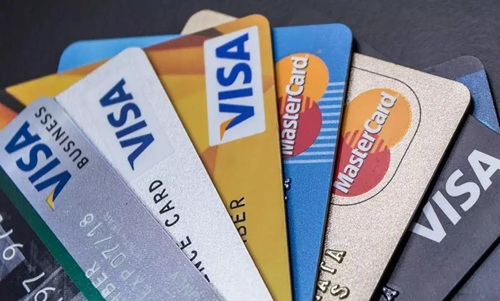The years-long Visa Mastercard ATM fees settlement has finally reached an end and it is a huge win to American consumers and Byzantine operators. The U.S. District Court judge Richard J. Leon signed a $197.5 million settlement that settled the claims against Visa and Mastercard alleging a decade-long conspiracy to overcharge ATM fees, on June 20, 2025.
The case is one of the largest antitrust settlements over the past several years, which had an effect on millions of individuals in the United States who have paid more ATM access fees since 2007.

How the Case Began
In 2011, a group of consumers and independent ATM operators initiated a legal struggle by employing an antitrust lawsuit on a class-action basis, that Visa and Mastercard had breached the federal antitrust laws. The plaintiffs welcomed an argument that the two payment giants had entered into agreements with the key banks like Bank of America, Chase, and Wells Fargo to limit competition on the ATM network market.
Such treaties supposedly prevented the reduction of fees by the ATM operators. Consequently, consumers would now get charged exaggerated ATM access fees whenever they access cash in the machines around the nation. The case alleged that the structure of this fee breached fair market competition and disadvantaged consumers and the small ATM business.
A Decade-Long Legal Journey
The case was subjected to several appeals and reviews at courts during the period of ten or more years. At first, the case was thrown out by the District Court, but in 2015 the case was overruled by the D.C. Circuit Court of Appeals and the lawsuit proceeded. In 2016, Visa and Mastercard caused the U.S. Supreme Court to deny gag order Visa and Mastercard to reverse the case, and the case proceeded to get class certification and finally lead to settlement talks.
In 2022, the court presented a $67 million settlement with leading banks, such as Bank of America, JPMorgan Chase, and Wells Fargo. A recent recovery, the Visa and Mastercard deal at $197.5 million was closed in 2025, transforming the sum of damage funds recovered by afflicted consumers and ATm operators to above $264 million.
Who Qualifies for the Settlement
The settlement group encompasses all persons and entities in the United States who charged unreimbursed ATM access fees by using a Visa, Mastercard debit or credit card between October 1, 2007, and July 26, 2024. These charges were incurred when making an ATM deposit that was not of the banks of the consumer.
Though the claims period is already over, the class members might still check atmclassaction.com to get updated on payment distribution and other settlement-related information.
What the Settlement Means for Consumers
The Visa Mastercard ATM fees settlement is not only a relief in terms of finance, but also a means of maintaining fairness in the functioning of the ATM networks. Over years consumers would not have a choice but to pay any fee that would be displayed on the screen. Having managed to tackle this case, Visa and Mastercard are under pressure to have more openness and competition in the ATM marketplace.
According to legal experts, the settlement would make future price-fixing by the payment networks less appealing. It is also an important precedent, demonstrating that even mighty corporations tip their hat to the antitrust laws that are aimed at guarding the consumers against unfair acts on the market.
Why This Case Matters
ATM charges are a minor matter but overtime they accumulate particularly to Americans who almost entirely depend on cash withdrawals. Price fixing causes the amount of rivalry to reduce as the companies involved concur to maintain high prices artificially. This settlement is a solid signal that financial fair play and consumer protection are the primary areas of concern in the U.S. justice system.
Another aspect brought out in the case is the use of class action lawsuits to make big corporations liable. Individual consumers may never have received compensation or even have become aware that such anti-competitive practices occurred without collective legal action.
What Comes Next
Although the economic cost is high, the increased implication is on the mechanism of ATM networks and payment structures in the future. To prevent the occurrence of lawsuits in the future Visa and Mastercard are likely to revise their fee policy. According to the knowledge acquired by the industry analysts, the settlement will promote increased openness and competition in the ATM systems and payment processing divisions.
This can be reduced costs and increased options to the consumers in the procedure of using an ATM in the United States. Nevertheless, this might be a long time before the changes can be seen in real-life banking transactions.
Final Thoughts
The Visa Mastercard ATM fees settlement marks the end of a long battle for fair pricing in the ATM industry. It acts as a wakeup call that the most influential corporations are also subject to consumers and the law.
This case represents one of the main achievements in the transparency, fairness, and competition in the financial sector with a total price of over $264 million settled. With payment systems undergoing constant transformation, this lawsuit will continue to influence the future of American banking, namely charges, accessibility, and competition.